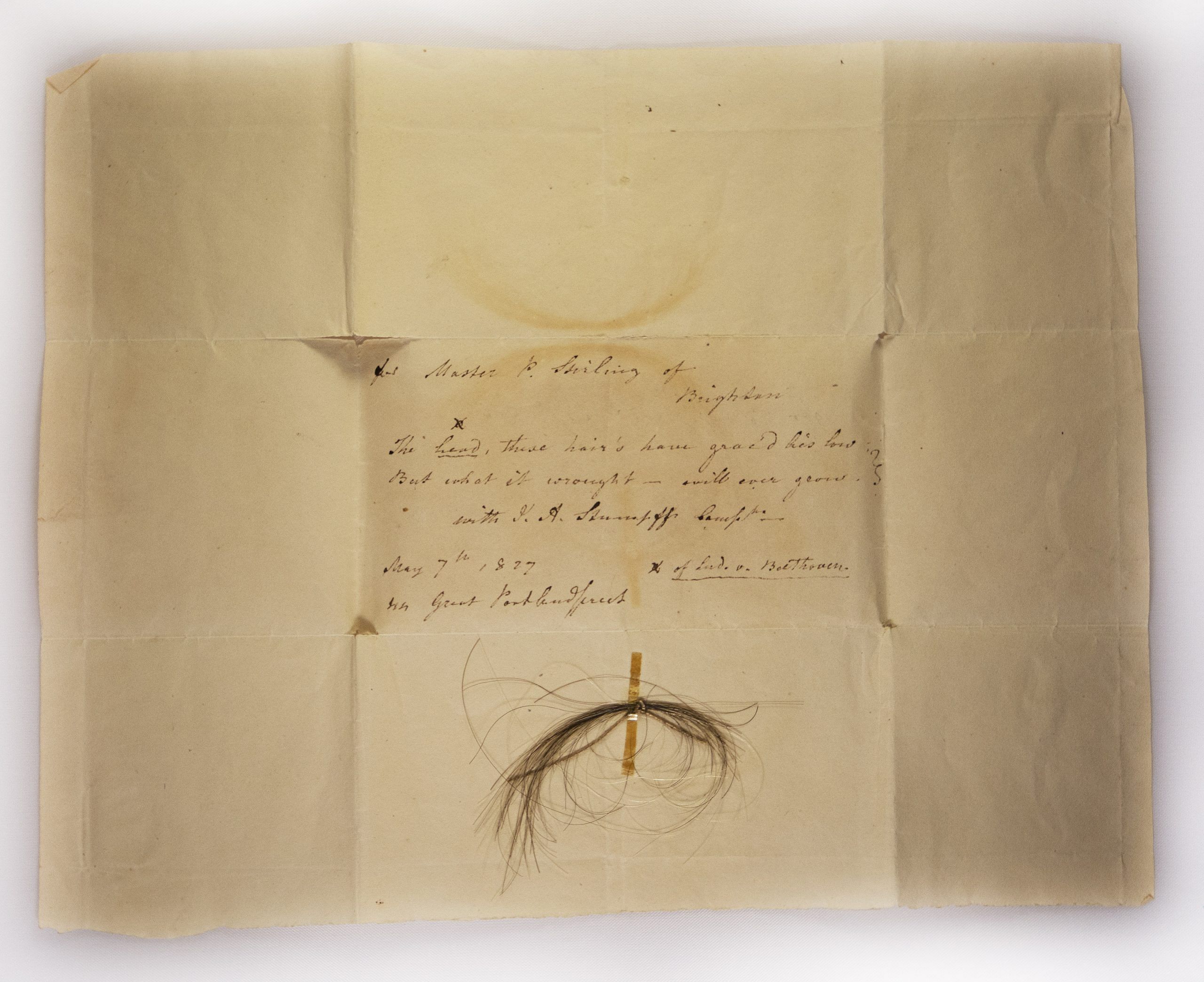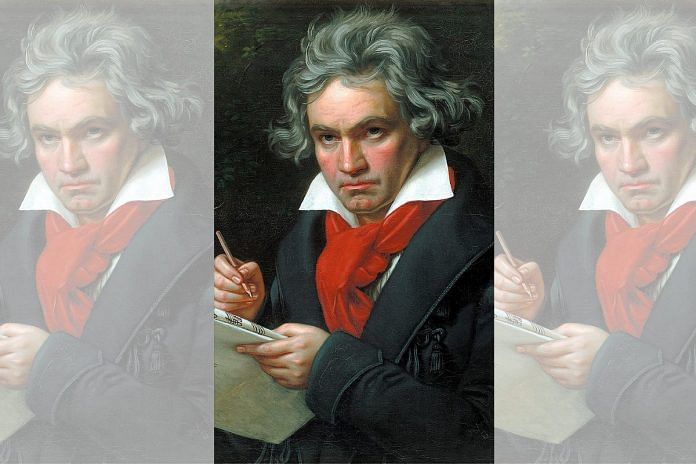New Delhi: Ludwig van Beethoven, among the most celebrated music composers to have lived, was at risk for liver disease and was infected with Hepatitis B. This, combined with his alcohol consumption, could have led to his death at the age of 56, researchers who sequenced his genome from his hair have found.
Published in Current Biology, the research was conducted to throw light on the ailments that troubled the composer throughout his life — Beethoven went completely deaf by the time he was 44-45 in 1818.
The team comprised researchers from the University of Cambridge, the Ira F. Brilliant Center for Beethoven Studies, the American Beethoven Society, KU Leuven, ancestry testing firm FamilyTreeDNA, the University Hospital Bonn and University of Bonn, the Beethoven-Haus-Bonn, and the Max Planck Institute for Evolutionary Anthropology.
The team did an authentication test on eight hair samples believed to belong to Beethoven. These were obtained from public and private collectors in the UK, Europe, and the US.
The research shows that DNA from five locks of hair, all dating from the last seven years of Beethoven’s life, originate from a single individual matching the composer’s documented ancestry.
The others include one believed to have been cut from the composer’s head by musician Ferdinand Hiller, who was 15 at the time, and came to be known as ‘Hiller lock’.
Also read: How wildlife DNA lab in Dehradun cracks ‘mystery meat’ cases, from poaching to beef disputes
What ailed Beethoven
The team also investigated possible genetic causes for Beethoven’s chronic gastrointestinal problems and the liver disease that contributed to his death.
The study revealed that Beethoven’s Hepatitis B infection might have aggravated his severe liver disease issue, worsened by his alcohol intake and genetic risk.
Tristan Begg from the University of Cambridge, also the lead author of the study, said, “We can surmise from Beethoven’s ‘conversation books’ (used by him to communicate with those around him), from the last decade of his life that his alcohol consumption was very regular, although it is difficult to estimate the volumes being consumed.”
He said that Beethoven’s contemporaries claim his consumption was moderate by early 19th century Viennese standards, but “there is not complete agreement among these sources”.
“If his alcohol consumption was sufficiently heavy over a long enough period of time, the interaction with his genetic risk factors presents one possible explanation for his cirrhosis,” he said.

Beethoven’s hearing loss has been linked to many potential causes, including diseases with various degrees of genetic contributions.
“Although a clear genetic underpinning for Beethoven’s hearing loss could not be identified, the scientists caution that such a scenario cannot be strictly ruled out,” said Dr Axel Schmidt at the Institute of Human Genetics, University Hospital of Bonn, who was a part of the research team.
He also noted that findings from the hair samples did not reveal the genetic origin of Beethoven’s hearing loss.
Since reference data — which are mandatory to interpret individual genomes — is steadily improving, Schmidt said, “It is, therefore, possible that Beethoven’s genome will reveal hints for the cause of his hearing loss in the future.”
While it was impossible to find a genetic explanation for the composer’s chronic gastrointestinal complaints, the researchers said, on the basis of the genomic data, “coeliac disease and lactose intolerance” are highly unlikely.
“We cannot say definitely what killed Beethoven, but we can now at least confirm the presence of significant heritable risk and an infection with Hepatitis-B virus,” said another team member, Johannes Krause from the Max Planck Institute of Evolutionary Anthropology. “We can also eliminate several other less plausible genetic causes,” he said.
The researchers also ruled out the previous study of the ‘Hiller lock’, which said that the composer died of “lead poisoning” — a possible factor in his health complaints, including his hearing loss.
“Since we now know that the lock provided by Hiller came from a woman and not Beethoven, none of the earlier analyses based solely on that lock apply to Beethoven. Future studies to test for lead, opiates, and mercury must be based on authenticated samples,” said Begg.
(Edited by Smriti Sinha)
Also read: Gene mutation made modern humans produce more neurons than Neanderthals



